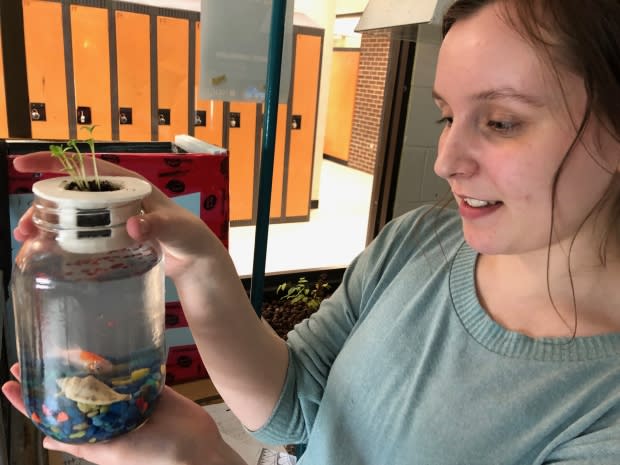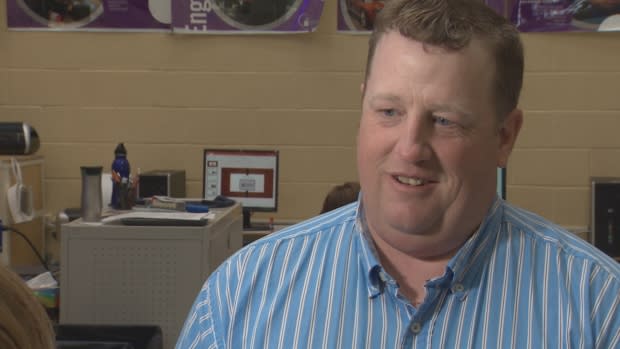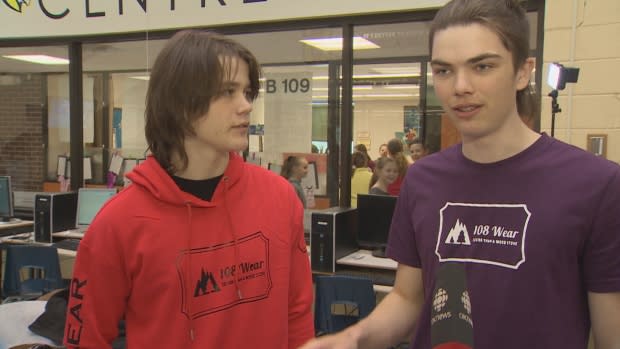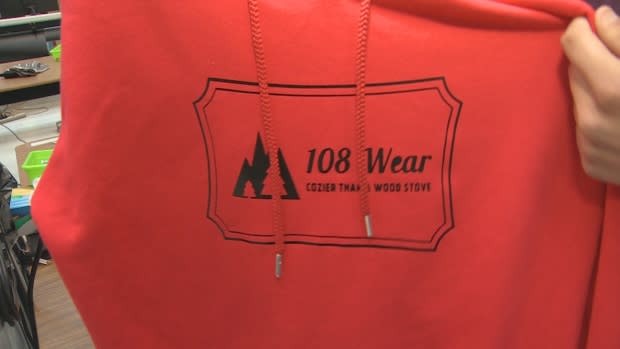Big ideas come to life at Blackville School's maker space
A new workspace at Blackville School is giving student entrepreneurs the tools to bring their ideas to life.
Students gathered at the school in Blackville, N.B., Wednesday afternoon to pitch and sell the goods they created in their new maker space — a workshop and design studio that helps them build, create and problem solve using technology and techniques outside the everyday curriculum.
The ICE Centre, which stands for innovation, collaboration and entrepreneurship, allows students to design, test and market prototypes for products and services.
On Wednesday, Blackville School students showcased their work with aquaponics, illuminating artwork and a clothing line, among other things.
Grade 12 student Jenna Coulter was interested in exploring aquaponics after seeing a rather large system online. So, she decided to create her own condensed setup using a jar of any kind and a 3D-printed holder.

"You take a jar, you have a 3D-printed part and put the starter plant in it, the roots will grow through the bottom of the pot holder, the fish will feed off it, and you really don't have to do anything with it," Coulter said. "Aside from once it grows too big, you have to take it out and replant."
Coulter said she learned a lot more about plants, fish and creating a natural ecosystem — plus understanding the ups and downs and commitment needed in entrepreneurship.
Maker spaces are becoming increasingly popular in schools, particularly in larger schools. The spaces feature a variety of tools, including computers to practice graphic design and coding, a 3D printer and a heat press.
Teacher Ashley Hallihan taught students to work in this kind of space at Miramichi Valley High School, but he wanted to ensure the rural school in his hometown also had access to this style of learning.
That's why he transferred to the K-12 Blackville School, about 50 kilometres southwest of Miramichi, and helped establish a maker space after many grant applications and co-funding arrangements.
"They have an assignment of learning that technology for the first time, and understanding how it works, and then finding a way to apply that technology to some new idea," Hallihan told CBC News.

"The surprise factor was how they quickly adjusted to all this new stuff … now, I have to kind of keep up with what they're doing and bring new stuff towards them."
Grade 11 students Patrick Donovan and Calvin Keenan used the space to launch their clothing line.

The duo worked with a vinyl printer cutter, a computer and a heat press to design their brand. They played with different logo styles and placement, but they also knew they needed to create a product that resonated with the local community.
They called it 108 Wear — named for the highway that runs north of Blackville — and the slogan is "Cozier than a wood stove."

"If you drive down the 108 highway, and you look at all the houses, you're going to see wood stoves, and you're going to see woodsmoke pluming out of the chimneys, and what's cozier than a wood stove? And that's our clothing," said Keenan.
The pair also had to manage the business end, from figuring out price points and marketing their brand on social media.
"It taught me how to manage my time more and money," Donovan said. "I want to run my own business, so maker space gives me all the experience I need."

Paige Gorman, another Grade 11 student, had an illuminating idea for interactive art.
"I'm taking microbits, soldering these, and I'm going to hook them up to a painting I did," Gorman said. "And that's going to make them light up. So, if you press a certain part of the painting, it makes it light up."
The space helped fill a big hole in the school's programming, she said.
"I love it so much because we have no art classes, basically, so this is the only class that's fun... I think."

